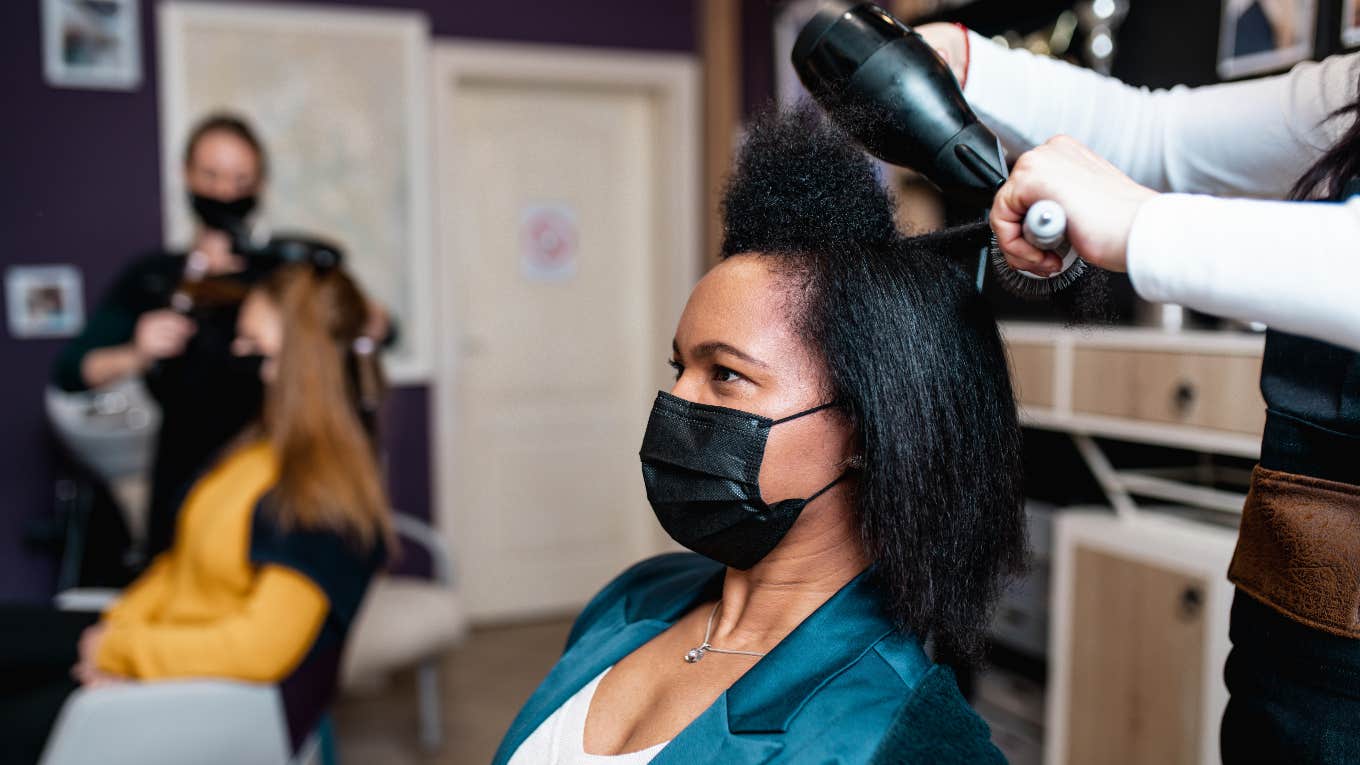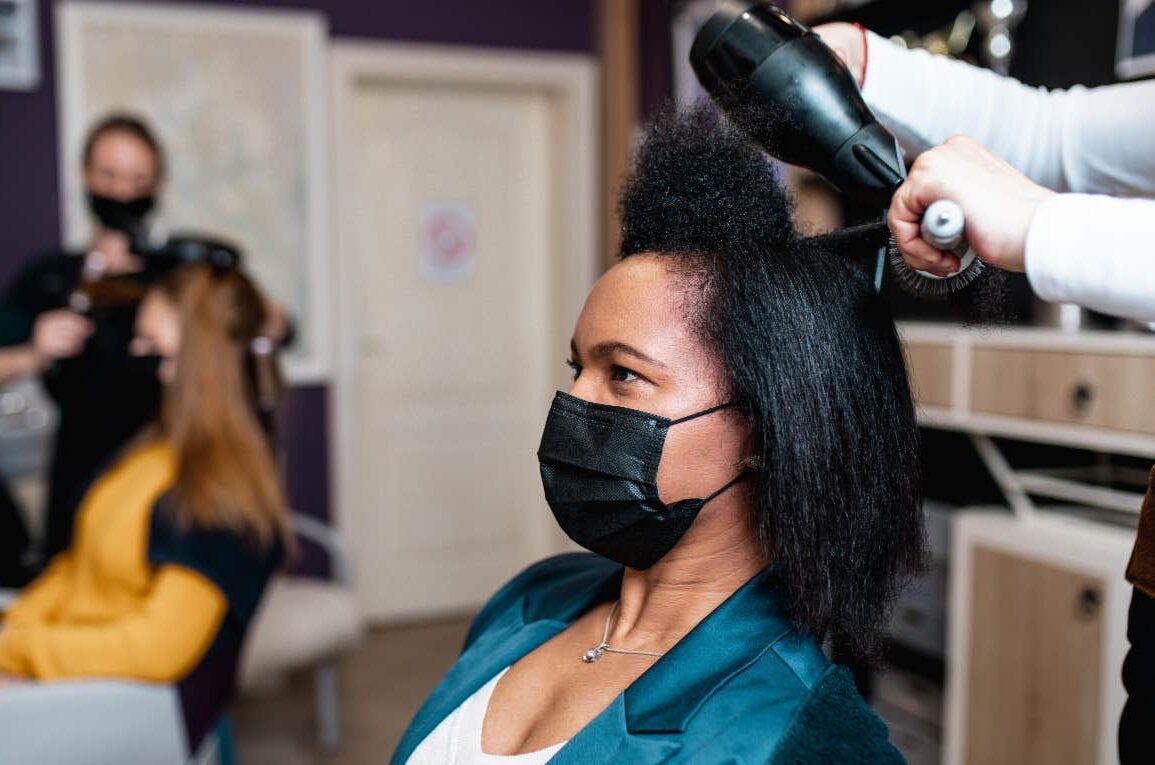
A woman who claimed to be an “over tipper” under normal circumstances decided not to tip at all during a recent experience at a hair salon. Her lack of tip had nothing to do with how her hair turned out but rather the disrespect she received.
She shared why she didn’t tip her stylist for a $60 service despite loving how her hair turned out.
Singer-songwriter Giordan Simone explained that when she first arrived at the salon, everything was going smoothly — at least until the stylist started detangling her hair. For reference, Simone shared that she has 4C-type hair, which refers to a specific hair texture for Black people.
Type 4 includes hair with tightly coiled or kinky textures, often referred to as “kinky hair.” It also tends to be highly textured and can shrink significantly in length once dry. Women with 4C hair usually have to put a bit more effort into styling and overall managing their hair because the tight coil pattern can be prone to tangling and breakage if not properly cared for. This hair type often requires regular moisturization, gentle handling, and protective styles, like braids, to maintain its health and appearance.
Apparently, the stylist took issue with Simone’s hair, as she rudely began huffing and puffing while making snide comments to the other stylist in Spanish, which she assumed Simone wouldn’t understand.
“I know she assumed that I didn’t understand or speak Spanish, so she’s saying to her co-worker, ‘You see all this work I have over here. You see what I’m working with over here,'” Simone recalled. “You would not have said that in English. The only reason you said that in front of me while you were doing my hair to your co-worker is because you thought I didn’t understand Spanish.”
Simone admitted that she felt incredibly ‘uncomfortable’ sitting in that salon chair.
At this point, Simone was fed up with the stylist’s inappropriate quips and remarks. While Simone is confident in her hair texture, she pointed out that those negative remarks could have made someone else with 4C hair feel ashamed enough to ruin their hair texture by getting a perm or a Keratin treatment — a process that smooths and straightens hair and will cause damage to someone with textured hair.
As someone who always over-tips, Simone considered leaving a low tip as she felt bad walking out without giving the stylist anything.
However, she ultimately refused to allow someone to disrespect her hair texture. In the end, when it was time to pay, Simone told the stylist that she didn’t need a receipt and saw the look of disgust on her face once she knew that Simone wasn’t leaving a tip.
“I decided to explain to her why I was not tipping her, and they tried to flip the script,” Simone said, “but regardless, this is my first time letting somebody else do my hair in three years, and it just reminded me of how difficult it is and how unsafe it is for Black women to get their hair done.”
For Black women, hair has always meant more to us than some people may realize. It’s entwined in our self-expression and identity, and being subjected to disrespect by someone who should know how to do our hair (and is being paid to) can be emotionally distressing and damaging. Simone’s decision not to leave a tip was a direct response to the stylist’s behavior and a way of asserting her self-respect and dignity.
If someone chooses to be a hair stylist, makeup artist, or tattoo artist, they must receive the proper education on handling and working with diverse hair types, skin colors, and skin textures — no questions asked. Black women shouldn’t have to search high and low for a stylist who understands and respects their hair texture and cultural identity. Everyone deserves to feel confident and valued in the salon chair without fear of judgment or discrimination.
Nia Tipton is a Chicago-based entertainment, news, and lifestyle writer whose work delves into modern-day issues and experiences.
This post was originally published on this site be sure to check out more of their content.








